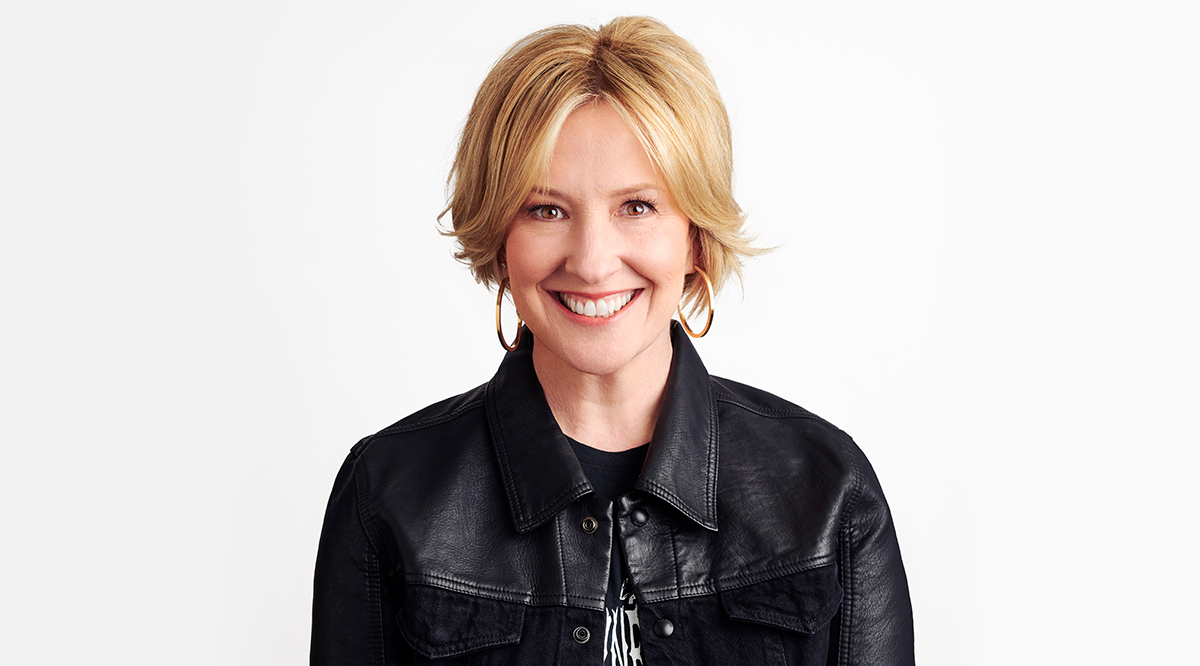
As bestselling author and podcast host Brené Brown, PhD, video called in from Austin, Texas, to speak at Learn Serve Lead 2021: The Virtual Experience, she started her session with an emotional acknowledgement of the hardship that many in the academic medicine community have experienced over the past year and a half due to the COVID-19 pandemic.
“One of the things that really surprised me was [that] one way people handled fear was turning on the people who chose courage,” Brown said. “Everyone at this conference has been on the receiving end, directly and sometimes indirectly, of very hard trauma and fear on top of being courageous. And so [speaking at the conference was] the very least I could do to say thank you for what you're doing and what you've been doing.”
On Monday, Nov. 8, Kate Walsh, MPH, president and CEO of Boston Medical Center, moderated a session entitled “Dare to Lead: In Conversation With Brené Brown, PhD,” about leadership in academic medicine. The session focused on the findings of Brown’s two decades of research that showed that vulnerability and feeling safe enough to be vulnerable are two of the most important factors in determining success and productivity.
“There is no courage without vulnerability,” Brown said. “Vulnerability is not weakness. It's the ability to show up and be seen. It's the ability to be brave when you cannot control the outcome. It's going to be very tough to change the systems because at the heart of these systems is perfectionism, fear, and the shame of making a mistake.”
Brown described the psychological defense mechanisms that many people employ to protect themselves from rejection or judgment as “armor,” noting that medical schools and health systems are notorious for punishing weakness rather than rewarding vulnerability.
“I feel like the armor is issued the day you get your short white coat as a first-year,” she said. “I think shame is still very pervasive in medical education and in hospital systems. I know that when I've interviewed physicians, they've said, ‘I'd rather own a mistake or an error with a patient than [with] my colleagues.’”
This culture can also perpetuate additional burdens on people who belong to groups that are underrepresented in medicine.
“I think we need to start overhauling the systems starting in medical school and moving all the way up,” Brown said in response to a question from Javeed Sukhera, MD, PhD, chief of psychiatry at Hartford Hospital in Connecticut, about people from racialized groups being seen as threats when expressing vulnerability and emotion. She later added, “Don't expect people who are being pushed to the margins — people of color, Black people, Indigenous people, women — … to be vulnerable and bring their whole selves when you [institutional leaders] haven't reality-checked the systemic issues in your system. Because it's not actually smart to do that. And so, what I think it takes is absolutely 100% nonnegotiable representation in every group that makes decisions that affect people in systems. And that's hard.”
The way to foster progress in diversity, equity, and inclusion at academic medical institutions is to listen to and commend people for reporting problems in the system, rather than ignoring or punishing this behavior, Brown added.
“The minute those contributions are framed as courageous and vital is the moment systems change,” she said.
It’s also important for leaders to be open to making mistakes and willing to be corrected and change. Brown shared an example from her own experience when she was publicly called out for a post on social media where she referred to someone as her “spirit animal,” a reference that many saw as disrespectful to and an appropriation of Indigenous cultures.
Brown admitted that her initial reaction was to become defensive or even retreat from using social media altogether, but she instead publicly apologized, thanked her followers for correcting her, and vowed to do better in the future.
“I keep engaging in [conversations about race, class, and gender] and oftentimes in public, because for me, what shifted is a mindset of, ‘I'm not here to be right, I am here to get it right,’” she said.
Not only does a culture that embraces vulnerability make for happier employees, but research also shows that these factors significantly impact productivity and performance. Brown referenced a five-year study that Google conducted to identify the factors that made its highest performing teams successful.
The top factor “was a combination of vulnerability, trust, and psychological safety,” Brown said. “You cannot unlock performance if you can't unlock people.”
As the medical community continues to grapple with the toll of the pandemic and the rising rates of burnout and mental health distress among health care providers, it’s important to remember than humans are a social species that relies on connection. And as segments of the public and the political world continue to be hostile toward scientists and medical professionals, it’s all the more necessary for rigorous support systems to be available within the medical community, Brown said.
“I think more hardship is coming,” she said. “You’re going to have to love each other out of this.”
